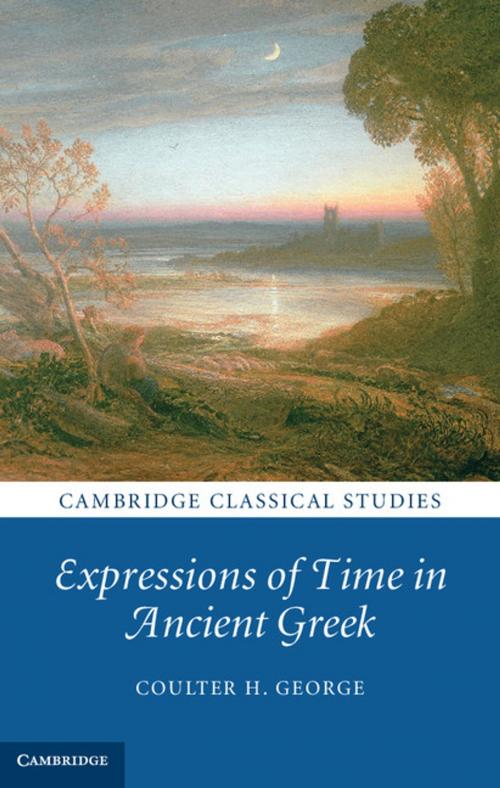Expressions of Time in Ancient Greek
Nonfiction, Reference & Language, Foreign Languages, Fiction & Literature, Literary Theory & Criticism, History| Author: | Coulter H. George | ISBN: | 9781139984843 |
| Publisher: | Cambridge University Press | Publication: | June 26, 2014 |
| Imprint: | Cambridge University Press | Language: | English |
| Author: | Coulter H. George |
| ISBN: | 9781139984843 |
| Publisher: | Cambridge University Press |
| Publication: | June 26, 2014 |
| Imprint: | Cambridge University Press |
| Language: | English |
How did Ancient Greek express that an event occurred at a particular time, for a certain duration, or within a given time frame? The answer to these questions depends on a variety of conditions - the nature of the time noun, the tense and aspect of the verb, the particular historical period of Greek during which the author lived - that existing studies of the language do not take sufficiently into account. This book accordingly examines the circumstances that govern the use of the genitive, dative, and accusative of time, as well as the relevant prepositional constructions, primarily in Greek prose of the fifth century BC through the second century AD, but also in Homer. While the focus is on developments in Greek, translations of the examples, as well as a fully glossed summary chapter, make it accessible to linguists interested in the expression of time generally.
How did Ancient Greek express that an event occurred at a particular time, for a certain duration, or within a given time frame? The answer to these questions depends on a variety of conditions - the nature of the time noun, the tense and aspect of the verb, the particular historical period of Greek during which the author lived - that existing studies of the language do not take sufficiently into account. This book accordingly examines the circumstances that govern the use of the genitive, dative, and accusative of time, as well as the relevant prepositional constructions, primarily in Greek prose of the fifth century BC through the second century AD, but also in Homer. While the focus is on developments in Greek, translations of the examples, as well as a fully glossed summary chapter, make it accessible to linguists interested in the expression of time generally.















